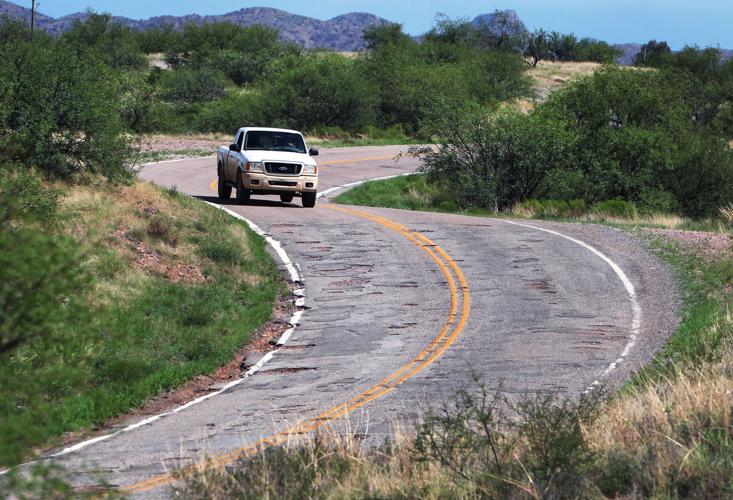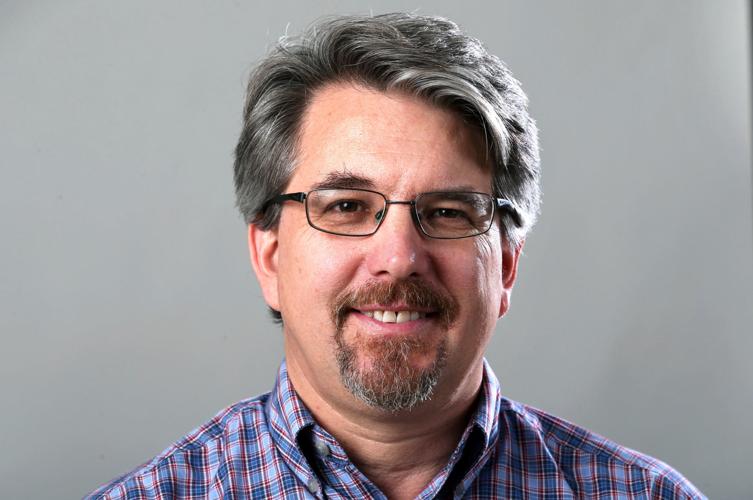Pima County voters say they want their roads repaired, but they’ve got a funny way of showing it.
Proposition 463, which would have allowed the county to issue bonds to fund $430 million in road maintenance, failed miserably, by about 56 percent to 44 percent.
In the immediate aftermath of the Nov. 6 election, I gathered some expert analysis, then opined that voters don’t trust Pima County with their money. That, experts said — and I agreed — is why they voted down the road-bonds package.
Now I’m here with an alternative analysis, one that is compelling for me in its simplicity: Pima County voters don’t actually care as much about road conditions as we thought.
I started pondering this after looking over the map of where people voted yes and no on Prop. 463, which would have made the money available without raising the secondary property tax rate by capping it at 69 cents per $100 of value.
In essence, precincts in midtown Tucson and the city’s west side voted yes, as did precincts in the Catalina Foothills. Green Valley was split, and everywhere else, most residents voted no. It was a smashing defeat.
As I mentioned, some Pima County supervisors and others are saying the result is because county voters don’t trust the county with their money. There likely is some truth to that. But that conclusion also derives from the assumption that what county residents really want is to repair decrepit roads, so their must be some counter-intuitive explanation for them voting down road repairs.
That’s a politically aware explanation, taking into account the currents of opinion in the county. But I’m starting to think it’s just bull.
The simple explanation for our lack of action on road repair is that the people of Pima County don’t want it that badly. Or, to put it another way, complaining is cheaper and maybe more satisfying than repairing roads.
Now, there is a more targeted explanation for the loss of Prop. 463. Most residents of Pima County live in incorporated areas — Tucson, Marana, Oro Valley and Sahuarita. The three Tucson suburbs have newer roads and not much need for repairs. They voted no.
Tucson itself has been making noticeable progress on road repairs, thanks to an earlier bond issue that city residents passed. Tucson voters were divided.
But unincorporated Pima County is where the story really gets interesting, because that’s where residents are dependent on the county to get their roads repaired. In the unincorporated area, only the Catalina Foothills and one precinct in Green Valley voted for the proposition. The northwest-side unincorporated areas did not, and neither did the southwest side or the southeast side.
By doing so, voters in those areas declared road conditions not to be that important to them, because this was a plan that, if not ideal, at least got the job going.
This November’s vote came after a variety of different efforts to raise money to repair the roads, a total bill that the county estimates around $800 million. It is right for voters to blame county officials for letting the problem get so bad. But it’s wrong to conclude they haven’t been trying to do something about it.
Numerous options have been floated in recent years. For a year, we used a portion of primary property-tax money to funnel money to road repairs. The county has lobbied the Legislature to raise the gasoline tax. The county has also requested permission from the Legislature to allow the board, by a majority vote, to give county voters the option of having a new road-repair sales-tax run by the Regional Transportation Authority.
This was one of two different sales-tax plans debated this year by the county board. On the second plan to increase the sales tax by a half-cent to pay for road repairs, the board voted for it 3-2, but by state law the vote must be unanimous to pass.
So, that having failed, the county moved on to this road-bonds proposal — basically issuing new bonds to pay for roads as old bonds were being retired. This was imperfect because bonding for road repairs is undesirable, but it was an opportunity to inject millions into repairs with an explicit guarantee it would not raise the secondary tax rates that the money is drawn from.
Republican Supervisor Ally Miller opposed the plan, as she has any plan that involves raising money through increased taxes or bonding. She has long said roads are her top priority, but argued there is enough money to pay for road repair in the budget, although the majority of her colleagues disagreed. In the end, that has meant a stalemate that allows roads to deteriorate and people to complain.
Miller even opposed the plan authored by fellow Republican Supervisor Steve Christy, who proposed a sales-tax increase, with the funds administered by the Regional Transportation Authority.
Now, Miller and her voters need to live with the failure. Her position, and that of her supporters, shows that road repairs really aren’t that high of a priority to them — though complaining about roads obviously is.
If it were up to me, I would channel all road-repair money available for unincorporated areas into the precincts that voted yes on Prop. 463. Their yes votes showed their level of concern. Those who voted no in unincorporated Pima County have shown it doesn’t matter that much to them. They should be left out.
Christy, when I asked him about my new theory, acknowledged there was some “validity” to it, but said, “I still think the people want the damned roads fixed.”
And Democratic Supervisor Sharon Bronson told me much the same: “I don’t think they (voters) understand the funding mechanism for roads, but we all want to drive on good roads,” she said.
But how much, really? I mean, Foothills residents deserve some credit, and some help, because they have bad roads and they voted for a solution.
The other residents of the unincorporated county, the ones who voted no, obviously don’t care that much and should stop complaining, though complaining is what they seem to want to do most of all.





